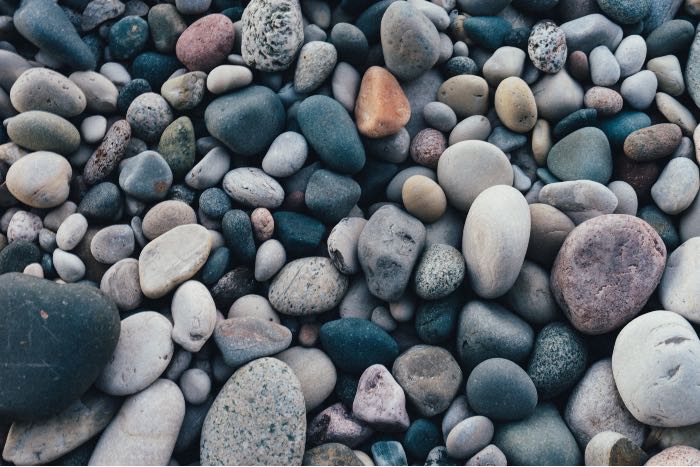
Being replaceable is freeing.
Episode 45 of the Make Saints podcast: “Replaceable”
the episode script
There is debate among ethicists about whether humans are good or bad for the planet. Which, if we’re being honest, is pretty damning simply by being debatable.
—
I’m not here to make the case for or against humanity. But I do want to explore something that comes up in the Christian lectionary at this time of year.
A man known as John the Baptizer, who is a kind of prophet, shows up telling people to change the direction of their lives. Ethically, morally, socially. Stop being selfish jerks, and focus on joining in with the work God is doing in the world.
Now, when some religious leaders come up to John to get baptized by him, he just unloads on them. He calls them a brood of vipers and tears into them about their hypocrisy.
And one of the things he says to them is this:
“Do not presume to say to yourselves, ‘We have Abraham as our ancestor’; for I tell you, God is able from these stones to raise up children to Abraham.”
There are two things people need to recognize about this statement:
- Being part of Abraham’s lineage is the biggest deal. And always has been.
- John is essentially saying “Yeah, OK, but even humanity itself is replaceable.”
Irreplaceable
There are big theological implications in what John is saying, which I’ll save for a sermon. I’d rather focus here on the idea of our being replaceable.
We love to think of ourselves as the opposite. That we are irreplaceable. And we treat our relationships with each other and with our loved ones the same way. Each one is unique, so each one is irreplaceable.
This is why we think the very idea of ever being replaced for anything as a grave insult.
Much of it is inspired by the uniqueness and specialness of each relationship we have. We, like snowflakes, are all unique. Without us, things would be different.
This isn’t wrong. And it probably encourages our most moral behavior. But, of course, all of this is also hubris.
Which is why we need to be humbled, if slightly, by the reminder that we could be replaced. Even, as John suggests, by stones.
Replaceable
In my own life, I find myself too often being pushed toward thinking “only I can do this” thing that needs doing. Or if I miss this one blessed opportunity, an entire life is thrown into chaos because I messed up.
As a person ordained by the church to holy orders, this is particularly funny. Because in so many situations, I am, quite literally, replaceable by anybody who is so ordained.
And if I’m not up to the task God has for me, God will call somebody else.
Being replaceable is actually quite freeing! The world isn’t on my shoulders after all. It isn’t up to me alone to solve all of our problems.
Here’s the thing, though. We can say the same thing about being a parent, a friend, or a sibling. Not that these things aren’t essential, but that even these are replaceable. If your parents aren’t up to the job, you really can replace them with people who will love you. I’ve had so many grandparents just by going to church!
We like to imbue our bloodlines with a specialness that makes specific relationships impossible to replace. But anyone who has been loved by adopted parents can attest to the possibility. And likewise, anyone who has found unconditional love outside their biological family knows this is true.
The possibility that love is way more powerful than lineage, race, national identity puts a lie to all the ways these corruptable ideologies diminish us and prevent us from knowing true love.
I’ll cast my sails toward the winds of love every single time.
—
Thanks for listening to Make Saints. Because (eternal) life is hard. And we could use all the help we can get.
